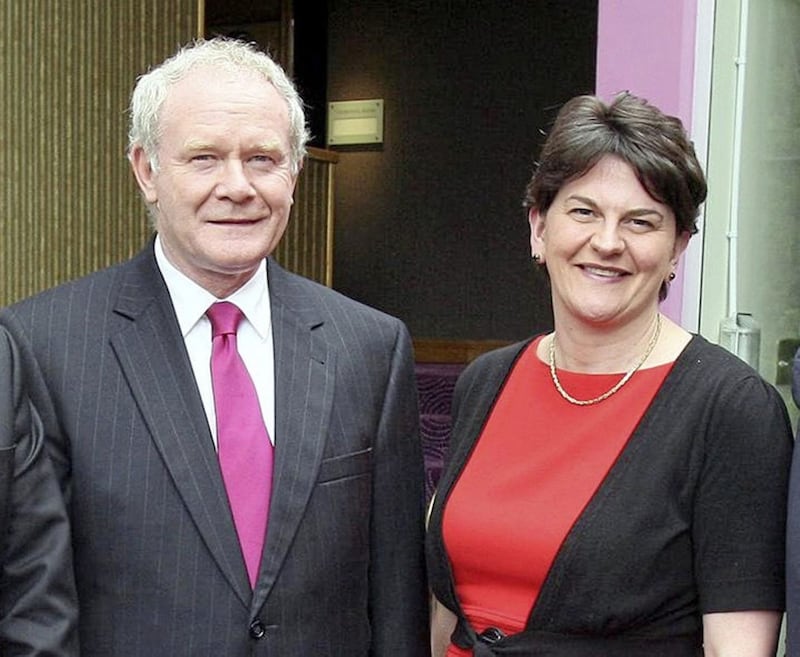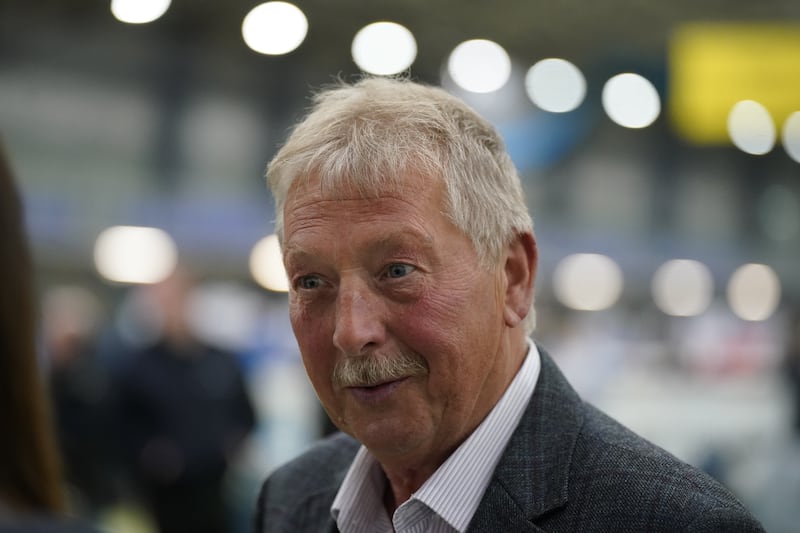Martin McGuinness and Ian Paisley got on perfectly well for a year. So well, in fact, that the DUP toppled him and replaced him with Peter Robinson.
He and Martin McGuinness had a civil enough relationship, yet not so civil that it prevented a series of standoffs, showdowns, crises and edge-of-the-cliff teetering.

McGuinness’s relationship with Arlene Foster was a bit distant for the first few months and then turned to ice around the time of the RHI saga, followed by his resignation letter and the collapse of the assembly for three years.

Arlene Foster and Michelle O’Neill did their best, “for the sake of the children”, as my aunt put it, but it was never convincing. And Paul Givan had barely got his feet under the table as first minister before Jeffrey Donaldson removed him and collapsed the structures for another couple of years.

All of this is a very long-winded way of saying that we shouldn’t set too much store by the nature of the relationship between the first and deputy first ministers. They don’t choose to spend so much time in each other’s company – they do it because the mandatory nature of their joint role means they are viewed as a double act and invited as a double act. They accompany each other to reassure their respective bases that the other one isn’t getting all the best photo-opportunities and handshake moments.
That’s the purpose of this double act. No more than that. No less than that. It can never become genuinely intimate because intimacy upsets the bases.
Let’s be honest, the vast majority of DUP and Sinn Fein voters would much rather have a poles-apart relationship. So apart, indeed, that they’d prefer not to share power at all. That’s why they prioritise the silo approach to governance, along with keeping the nuclear option of the veto that Sinn Fein deployed in January 2017 and the DUP deployed in February 2022.

I won’t deny that Michelle O’Neill and Emma Little-Pengelly appear to have a particularly good relationship and clearly aren’t afraid of putting themselves in potentially embarrassing situations with spades and sliotars. So what? I’m also quite sure their double act will play well in Washington over the next few days and will be highlighted to potential investors by Chris Heaton-Hazard and Joe Kennedy III. Yet smiles and giggles won’t be enough to underpin, let alone guarantee stability until the end of the mandate in 2027.
Quite a few of those investors will be happy enough to pose with Heaton-Hazard, Kennedy, O’Neill and Little-Pengelly, along with President Biden; but they won’t be writing any cheques until they have guarantees that their investments will be safe if another crisis triggers yet another collapse. In other words, if one form of government goes down they want certainty that there will be another form ready to pick up the pieces.

The sight of McGuinness and Paisley in 2007 was an astonishing one for investors. Two former enemies working as one and happy to be seen relaxing and laughing together. It was a sight to behold, even for an old cynic like me.
But no other relationship has come close to that one and there has been a very long line of disappointments in the 17 years since then. So, smiles and photo-opportunities from the first and deputy first ministers are no longer enough, particularly since everyone knows that the relationship between the parties themselves is nowhere close to that PR manifestation of cooperation and civility.
Instead of championing the mere fact that the executive is actually up and running again, they need to be the front and centre promoters of jointly agreed executive policies and priorities
There is a better role for the double act, though. Instead of championing the mere fact that the executive is actually up and running again, they need to be the front and centre promoters of jointly agreed executive policies and priorities. Whacking a ball around or showing how carefully they can cut a ribbon together will, fairly quickly, bore both press and public.
- Newton Emerson: Could the sliotar sisters actually have a good working relationship?Opens in new window
- DUP deputy first minister Emma Little-Pengelly tries out hurling during visit to GAA clubOpens in new window
- Gestures are important but we need a Stormont with substance - The Irish News viewOpens in new window
Instead, they should be out with their ministerial team at schools, hospitals, fields, shops, roadworks, factories etc, setting out exactly what has been agreed and how it will be progressed.
It isn’t just about finding something for the first and deputy first ministers to do for the cameras. It’s about the entire executive and the entirety of governance.










